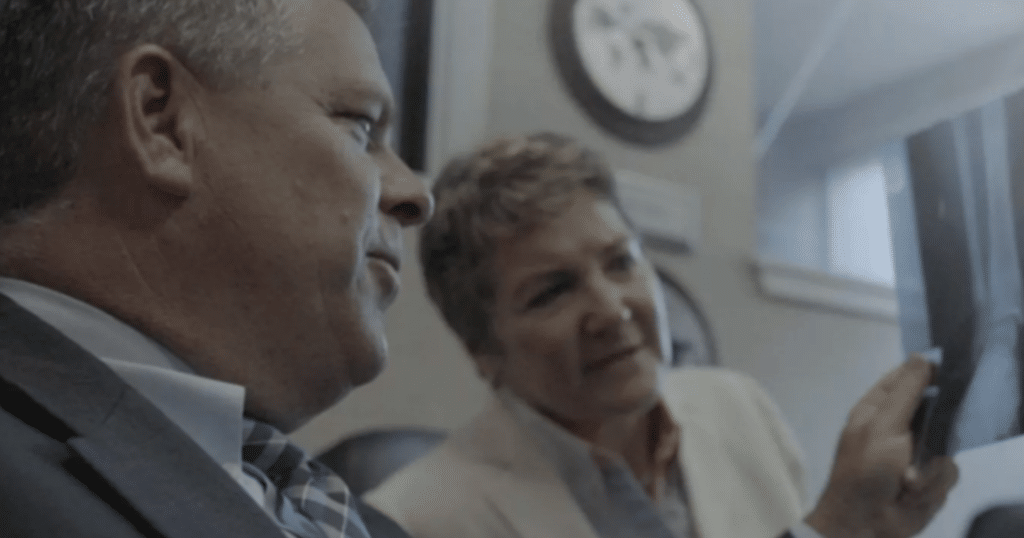Rhode Island Nursing Home Abuse Lawyer
When a loved one suffers abuse in a nursing home, family members struggle with where to turn next. Nursing home abuse often leads to poor health outcomes, including an increased risk of death. A Rhode Island nursing home abuse lawyer at Marasco & Nesselbush can help you and your loved one pursue compensation for losses caused by nursing home abuse, including medical costs and pain and suffering.
- Updated date:
- June 25, 2024
Families choose nursing homes for their aging loved ones with care. Families hope to select a nursing home with a well-trained staff that provides their loved ones with first-rate care and treatment. Unfortunately, that is not always the case, and seniors across Rhode Island still face elder abuse in their nursing homes.
Recent mentions of Rhode Island nursing home abuse in the news, including the suspension of the nursing home administrator license for Sami Almadi of Pawtucket Falls Healthcare Center, may cause people to question the care their family members have received.
Abuse and neglect can occur even in some of the most exclusive and expensive nursing homes. If your loved one suffered mistreatment, the nursing home abuse lawyers at Marasco & Nesselbush can guide your family through an injury claim.
Marasco & Nesselbush: Compassionate Legal Representation For Nursing Home Abuse Victims
At Marasco & Nesselbush, you will find compassionate Rhode Island nursing home abuse attorneys who understand the damages that occur due to nursing home abuse and will fight to help every client recover the compensation they deserve.
Our elder abuse lawyers bring hard work, honesty, and integrity to every claim and provide the support and assistance you need as you fight to protect your loved one’s rights. We have a thorough understanding of Rhode Island elder abuse law and the rights of our clients and their families following abuse in a nursing home.
What Is Nursing Home Abuse?
Nursing home abuse occurs when elderly patients are harmed by their caregivers. Elder abuse can happen intentionally or unintentionally. For example, caregivers generally do not intend to neglect patients but may fail to provide the standard of care the patients need because a nursing home is understaffed. There are several different types of nursing home abuse.
DO I HAVE A CASE?
If you think you may have a case, contact us now for a FREE consultation
"(Required)" indicates required fields

Nursing Home Neglect
Many patients move into a nursing home or assisted living facility to receive a higher standard of care than they can get in their homes. This move should protect their quality of life and offer access to quality medical care and skilled nursing support.
Nursing homes in Rhode Island have a legal duty to provide the goods and services necessary to protect the health and welfare of seniors under their care. When caregivers fail to provide the standard of care their patients need, it constitutes nursing home neglect.
Physical Abuse
Physical abuse occurs any time a caregiver physically harms a patient. It includes hitting, grabbing, pinching, or other actions that cause harm to patients.
Emotional Abuse
Emotional abuse encompasses verbal and nonverbal actions that cause a nursing home resident to experience emotional pain, fear, or distress. It includes bullying, threats of harm, refusing access to family members, humiliation, or otherwise manipulating the patient’s emotions.
Sexual Abuse
Any type of unwanted sexual contact, including contact with the genitals, breasts, or anal area, falls into the category of sexual abuse. Sexual abuse also includes unwanted sexual attention.
Financial Abuse
When caregivers take financial advantage of seniors, they commit financial abuse. Financial abuse can range from a caretaker stealing funds or property or manipulating a senior into giving the caretaker money or property.
Causes Of Nursing Home Abuse In Rhode Island
Nursing home and assisted living neglect and abuse occur for several reasons. Some of the risk factors to be aware of if you have a loved one in a nursing home include the following:
- Understaffing
- Poor supervision
- Inadequate staff experience or training
- Poor hiring practices
- Underpaid staff
Some caregivers may have personal issues that increase the risk of abuse and neglect of the seniors in their care. An experienced Rhode Island nursing home abuse lawyer can determine whether abuse has occurred and identify all of the parties that might be responsible for your loved one’s losses.
Rhode Island Nursing Home Laws And Regulations
Rhode Island has licensing requirements for nursing homes, including minimum staffing standards and several other requirements. The following are some key provisions:
- Residents must receive at least 3.81 direct hours of care per resident per day.
- Residents must receive at least 68 percent of their direct nursing care from a nursing assistant.
- Rhode Island nursing homes must have safe patient-handling programs and committees to ensure the safety of all their patients and caregivers.
- Nursing homes licensed by the state must receive regular inspections, including inspections conducted without notice.
- Caregivers must report elder abuse in nursing homes within 24 hours of receiving any information indicating abuse or neglect.
Failure to adhere to these regulations can result in the nursing home losing its license and ability to care for patients.
Signs Of Nursing Home Abuse
If your loved one is a nursing home resident, you should visit regularly to ensure they are being treated well and look for signs of abuse. Look out for these key signs of elder abuse and neglect:
- Dehydration or malnutrition
- Untreated injuries or illnesses
- Conditions that were previously managed well suddenly get out of control
- Frequent injuries, including head injuries or injuries without an explanation
- Bed sores
- Withdrawal
- Agitation
- Poor hygiene
- Dirty or torn clothing
- Untidy or dirty rooms
- Listlessness, depression, or fatigue
- Increased wandering or elopement from the nursing home
- Obvious fear of one or more caregivers
- Refusal to receive care from specific caregivers
- Sudden changes in their financial affairs
- Sudden changes in mood or behavior
If you suspect your loved one has suffered nursing home abuse, contact the elder abuse lawyers at Marasco & Nesselbush as soon as possible to discuss your family’s rights. An experienced Rhode Island nursing home abuse attorney can also explain how to report nursing home abuse and help you at every stage of the process.
Steps to Take If You Suspect Nursing Home Abuse
If you suspect nursing home abuse, it’s crucial to take immediate action to ensure the safety and well-being of the vulnerable individual. Here’s a clear, actionable guide outlining the steps you should take:
Document Evidence
- Start by documenting any signs or symptoms of abuse you’ve observed. This may include physical injuries, unexplained bruises or cuts, sudden changes in behavior, emotional distress, or neglect of basic needs.
- Take photographs or videos of any visible injuries or unsafe conditions.
- Keep detailed records of dates, times, and descriptions of incidents or concerns.
Ensure Safety
- If you believe the individual is in immediate danger, remove them from the facility and seek medical attention if necessary.
- Ensure their safety by providing a supportive and comforting environment.
Report to the Authorities
- Contact the local law enforcement agency or adult protective services to report the suspected abuse. Provide them with all relevant information and evidence you have gathered.
- If the individual is in immediate danger, call emergency services (911) for immediate assistance.
Notify the Nursing Home Management
- Inform the management of the nursing home about your concerns regarding suspected abuse. Request a meeting with the appropriate staff members to discuss the situation.
- Follow up in writing, send a formal complaint outlining your concerns, and document any response or actions taken by the facility.
Consult with a Lawyer
- Seek legal advice from a reputable Rhode Island nursing home abuse lawyer experienced in nursing home abuse cases, such as Marasco & Nesselbush.
- A lawyer can help you understand your legal rights, options, and next steps. They can also assist you in gathering additional evidence, navigating the legal process, and advocating for the rights of the victim.
Support the Victim
- Offer emotional support and reassurance to the victim. Let them know they are not alone and that you are there to help them through this difficult time.
- Encourage open communication and empower them to speak up about any further instances of abuse or neglect.
Follow Through
- Stay involved in the process and follow through on any necessary actions, such as attending meetings, providing additional information, or pursuing legal proceedings.
- Keep advocating for the rights and well-being of the victim until justice is served and appropriate measures are taken to prevent further abuse.
By following these steps promptly and diligently, you can help ensure that suspected nursing home abuse is addressed effectively, the victim is protected, and justice is served.
Compensation In Rhode Island Nursing Home Abuse Cases
If you or a loved one suffered losses from nursing home abuse or neglect, you can seek compensation.
Compensation can include the following:
- Medical costs
- Costs to move to a new nursing home, especially in cases in which the patient needs a higher standard of care due to the abuse
- Pain and suffering
- Mental anguish
Nursing Home Wrongful Death Cases
If your loved one dies because of nursing home abuse, you may have the right to recover compensation for funeral and burial expenses and the loss of your loved one’s presence. A Rhode Island nursing home abuse lawyer at Marasco & Nesselbush can investigate the damages your loved one sustained and explain the compensation you can recover for nursing home wrongful death or abuse claims.
Contact Marasco & Nesselbush For Help With Your Nursing Home Abuse Claim
Elders deserve care and support throughout their final years. When nursing homes fail to provide the required level of care, it can decrease lifespans and lead to considerable suffering. At Marasco & Nesselbush, our Rhode Island nursing home abuse attorneys are dedicated to holding negligent nursing homes and assisted living facilities and their staff members liable for the damages caused by their neglect and abuse.
To learn more about your legal options following nursing home abuse, contact us at (401) 417-4904 for a free consultation. With offices in Warwick, Wakefield, Woonsocket, East Providence and Providence, we are prepared to help clients throughout Rhode Island seek the assistance their loved ones need.
FAQ
What Is the Statute of Limitations for Nursing Home Abuse Lawsuits in Rhode Island?
The statute of limitations provides a deadline by which a legal claim must be filed. In Rhode Island, victims of nursing home abuse need to file a claim within three years.
What Legal Rights Do Rhode Island Nursing Home Residents Have?
Nursing home residents have the right to the following:
- Be free of abuse and neglect
- Receive respect and needed care
- Participate in programs
- Avoid discrimination
- Avoid restraints for discipline purposes
- Get needed medical care
- Have family members, or other representatives notified about problems and health challenges
- Report any problems with the nursing home or file a complaint if needed
Carefully choosing a nursing home can help protect your loved one’s rights.
How Much Does it Cost to Hire a Nursing Home Abuse Lawyer in Rhode Island?
At Marasco & Nesselbush, we take nursing home abuse cases on a contingent fee basis. That means you do not have to pay fees upfront. Instead, if we successfully resolve your claim, we will receive a percentage of the compensation you receive.
How Long Does a Nursing Home Abuse Case Take to Settle?
Nursing home abuse cases often take months or more to reach a settlement agreement. You can expect:
- An investigation period, during which your Rhode Island nursing home abuse lawyer and the nursing home’s insurance company investigate the allegations of abuse.
- A negotiation period with the insurance company to work towards an agreement on the compensation you deserve.
- A lawsuit when you cannot reach an agreement through negotiation.
The Rhode Island nursing home abuse lawyers at Marasco & Nesselbush can provide you with more information about the complexity of your claim and how long it may take to pursue compensation.


